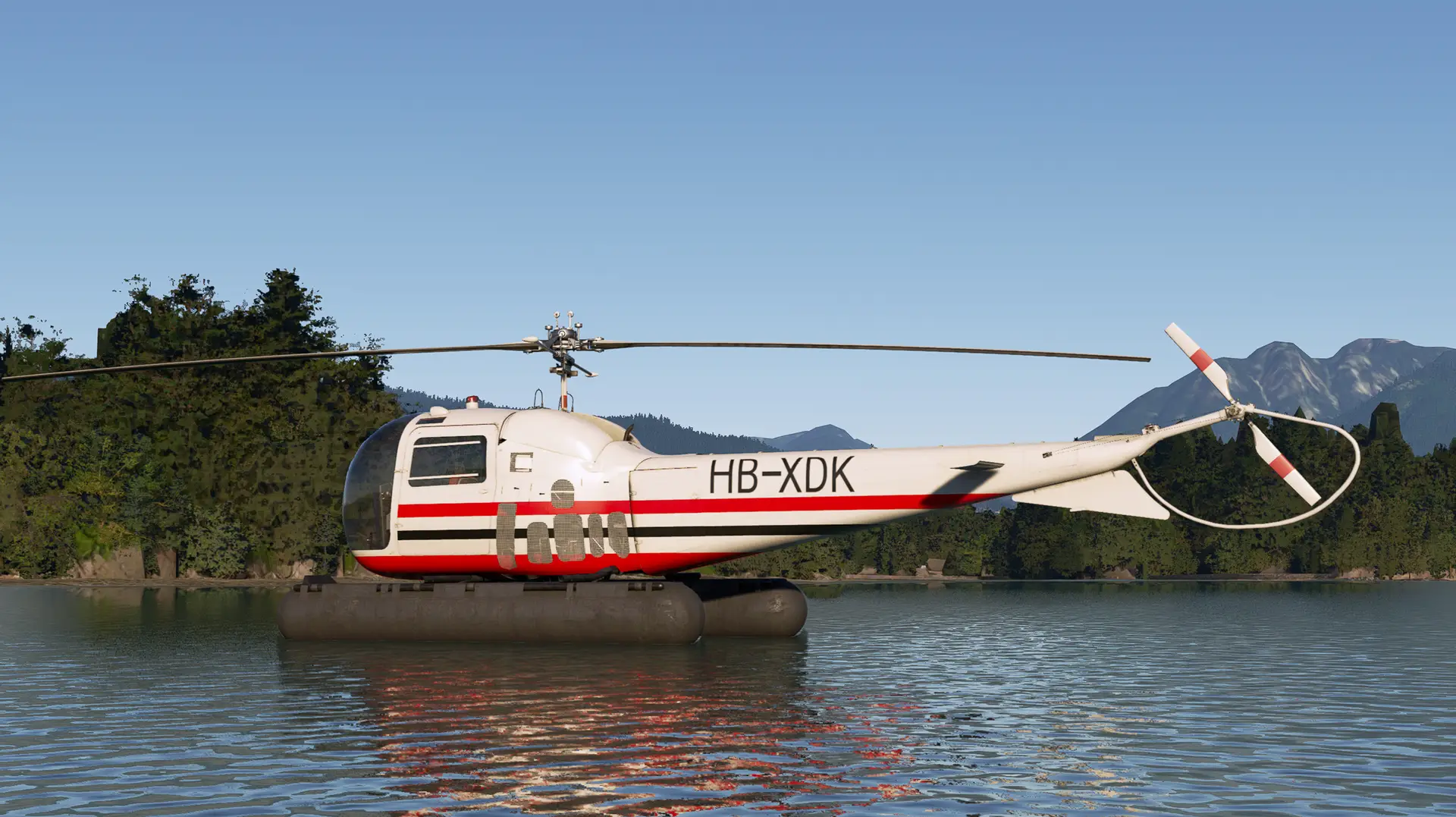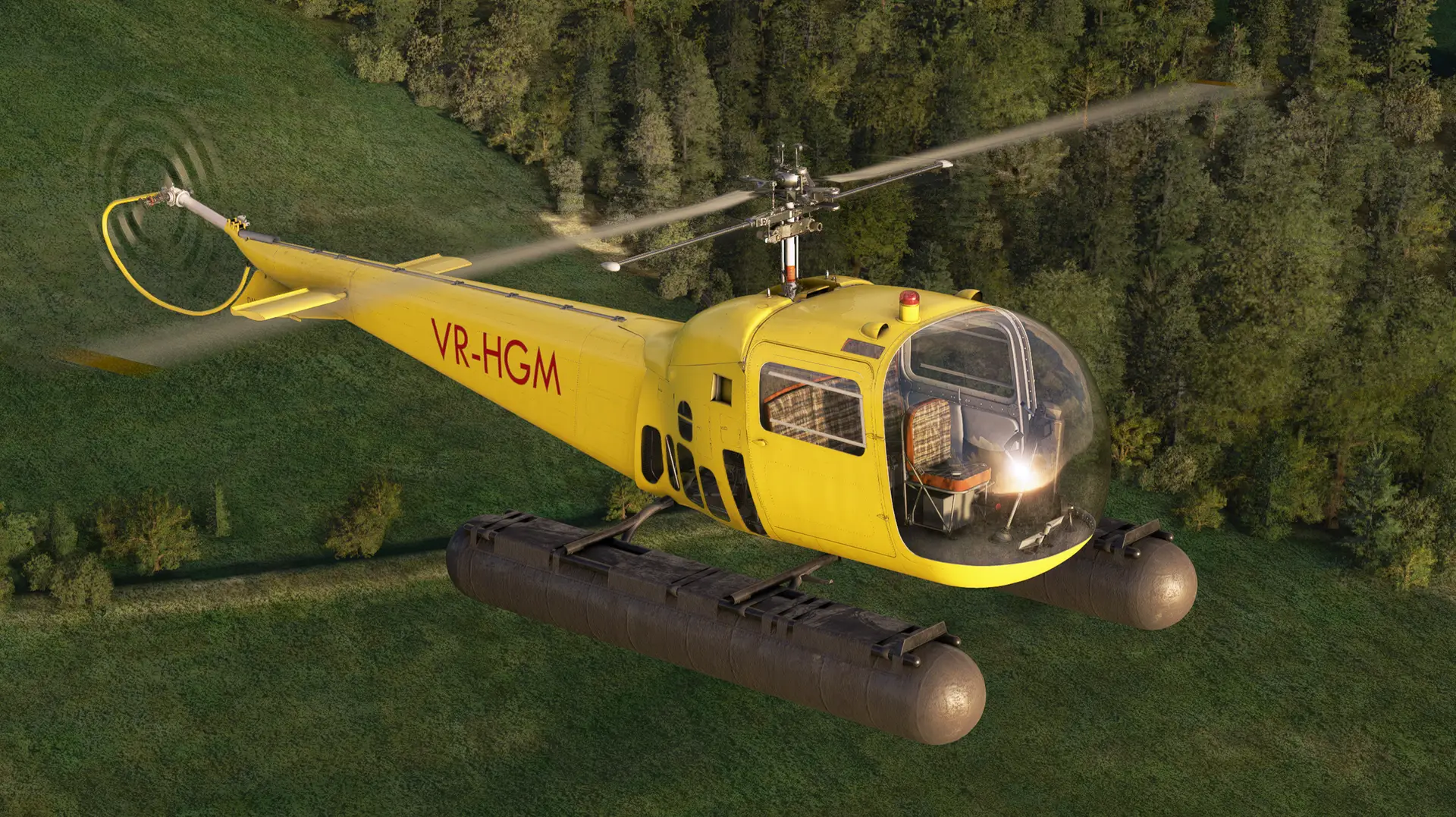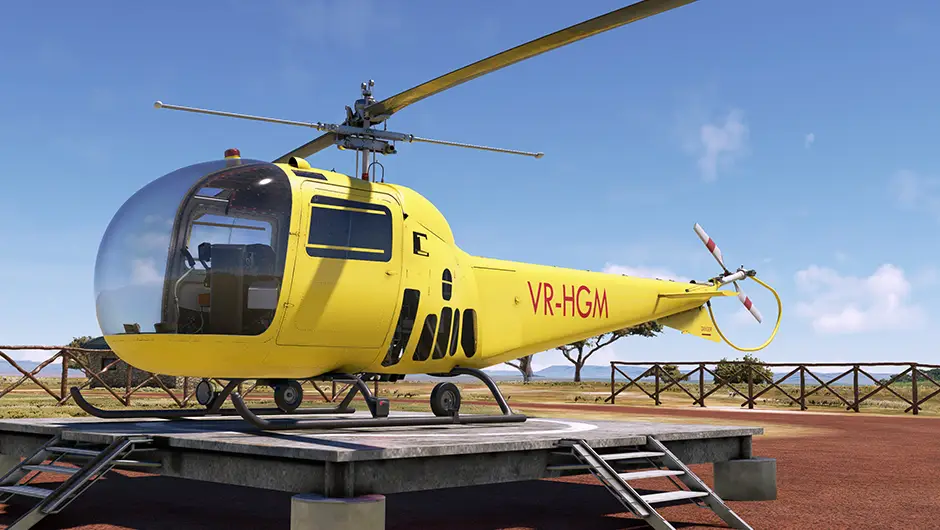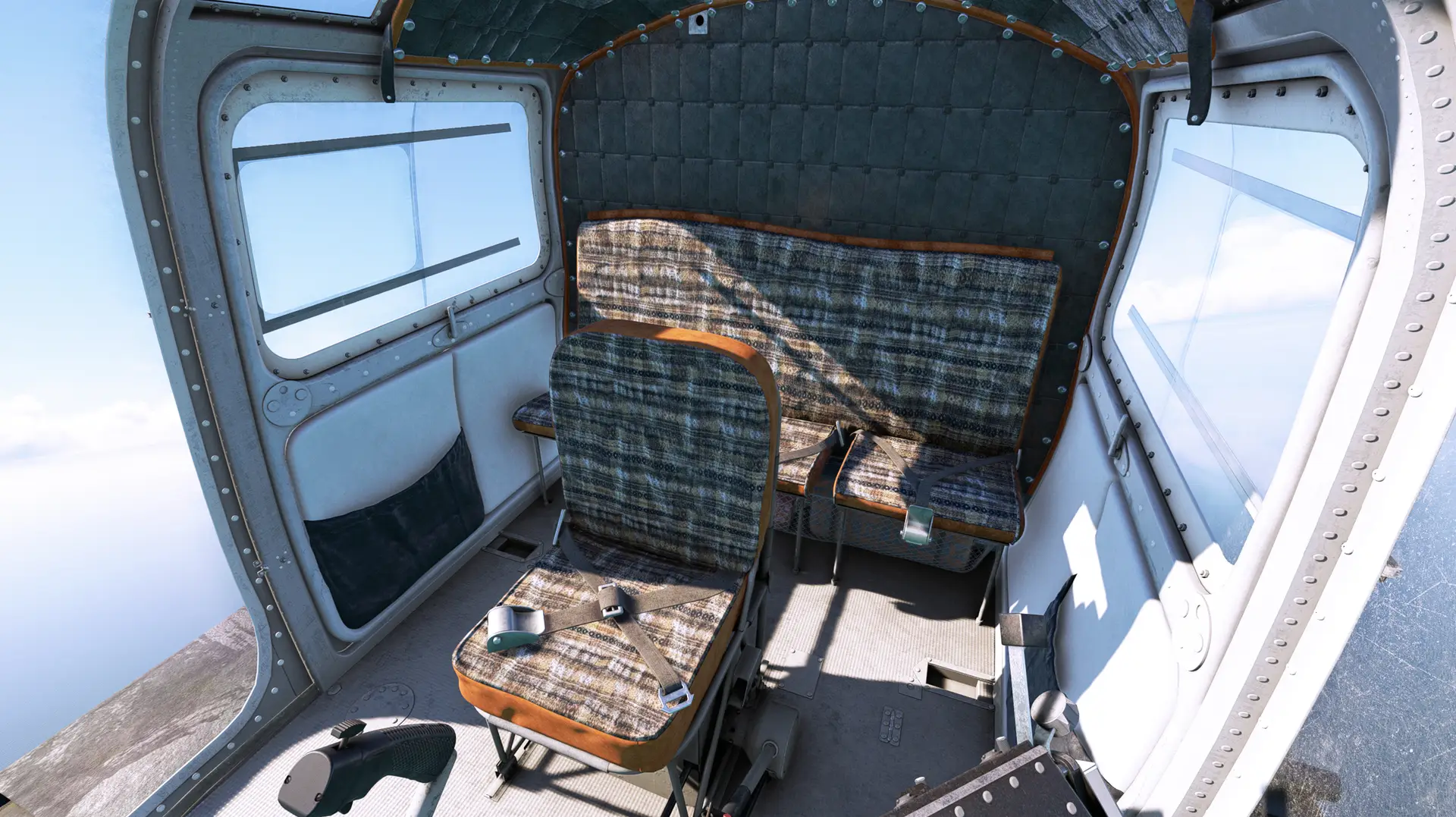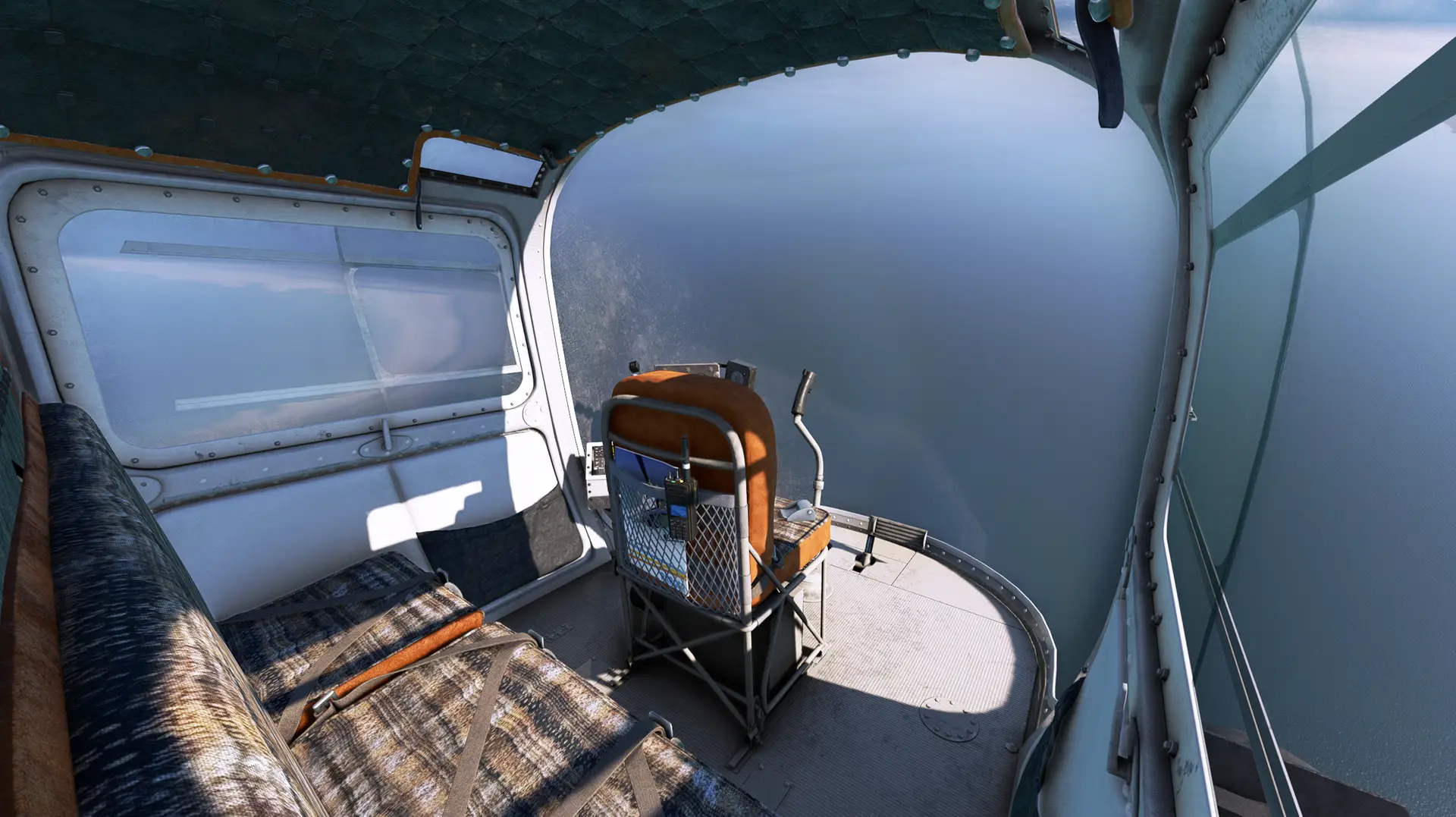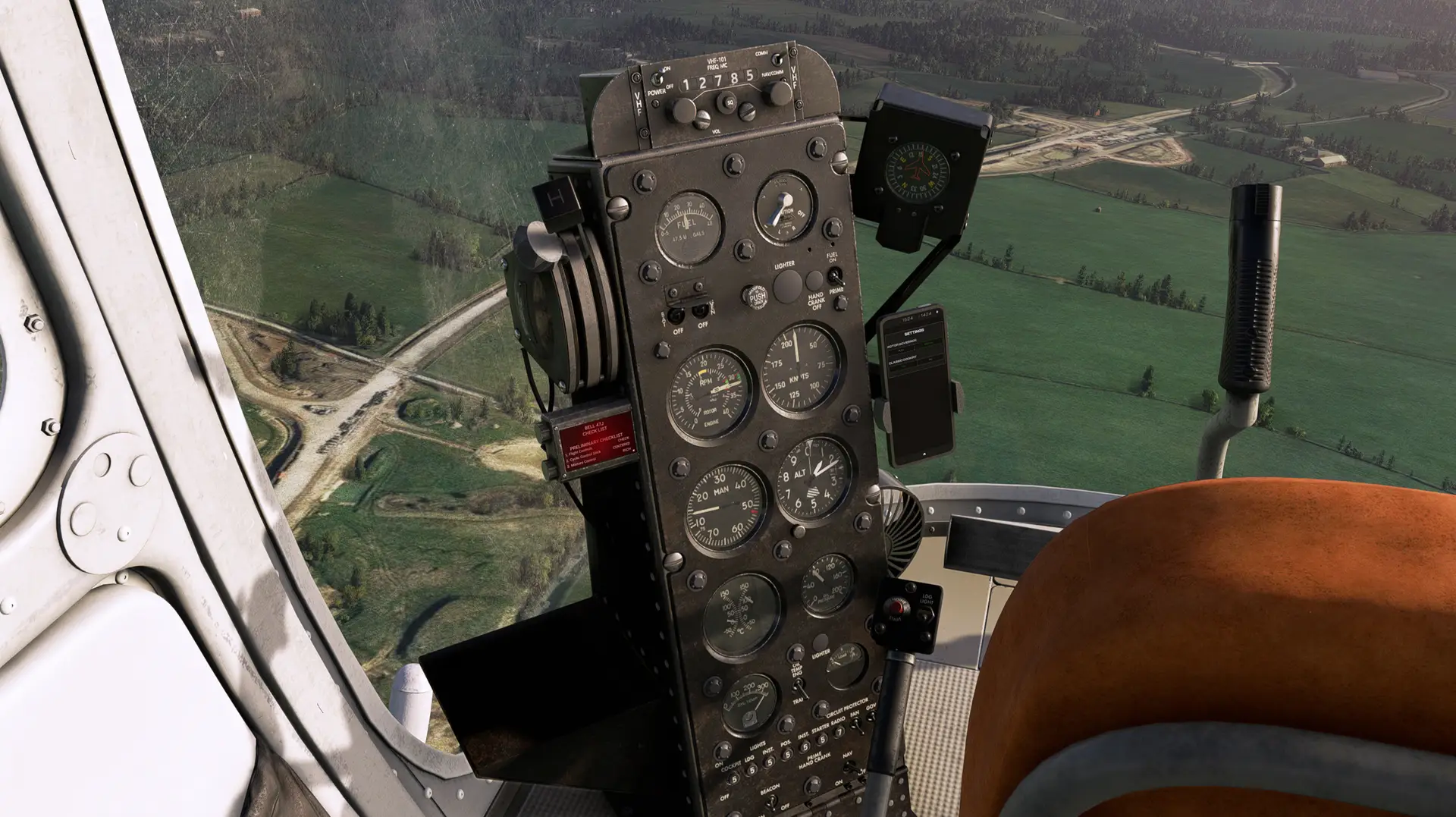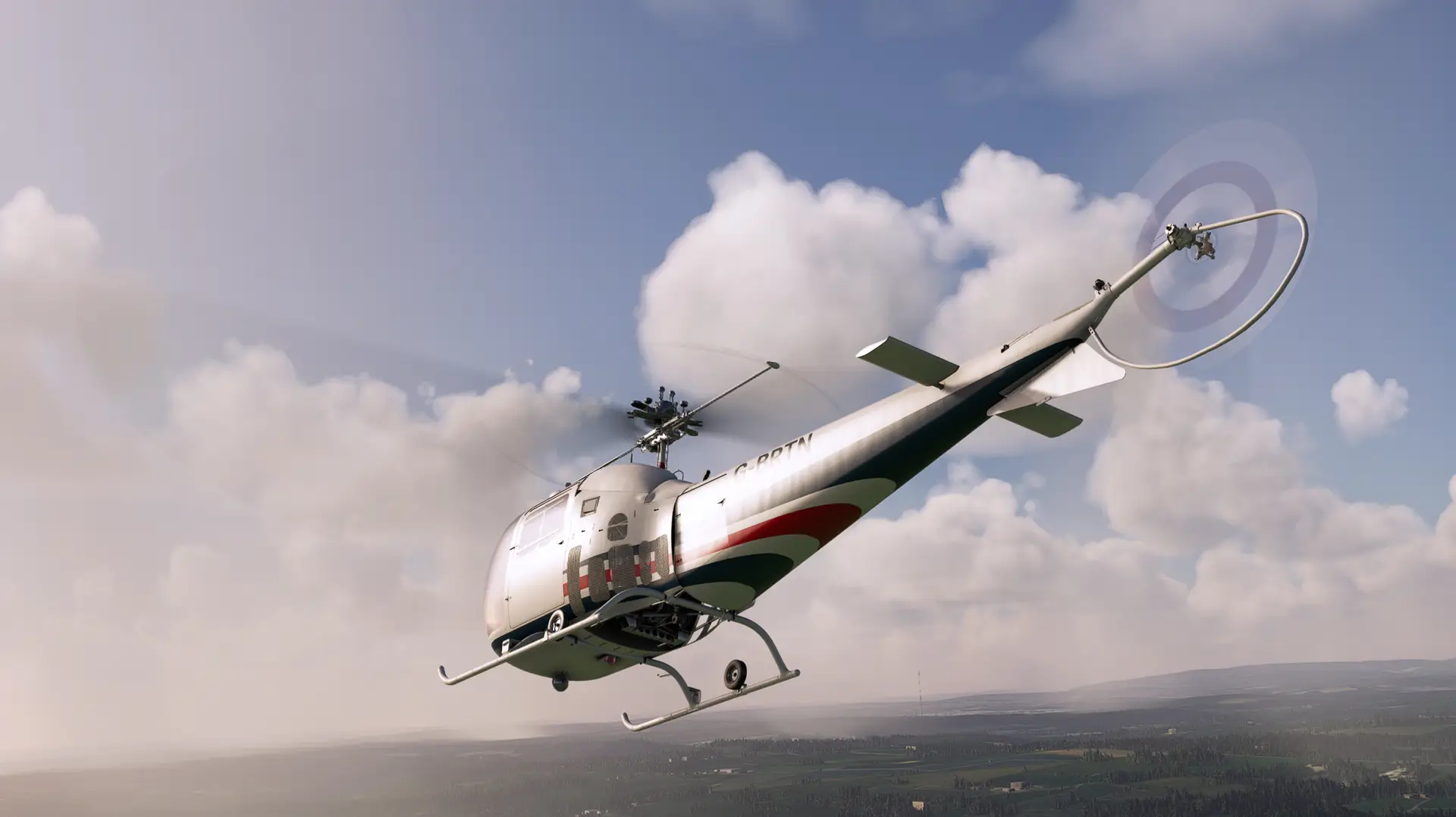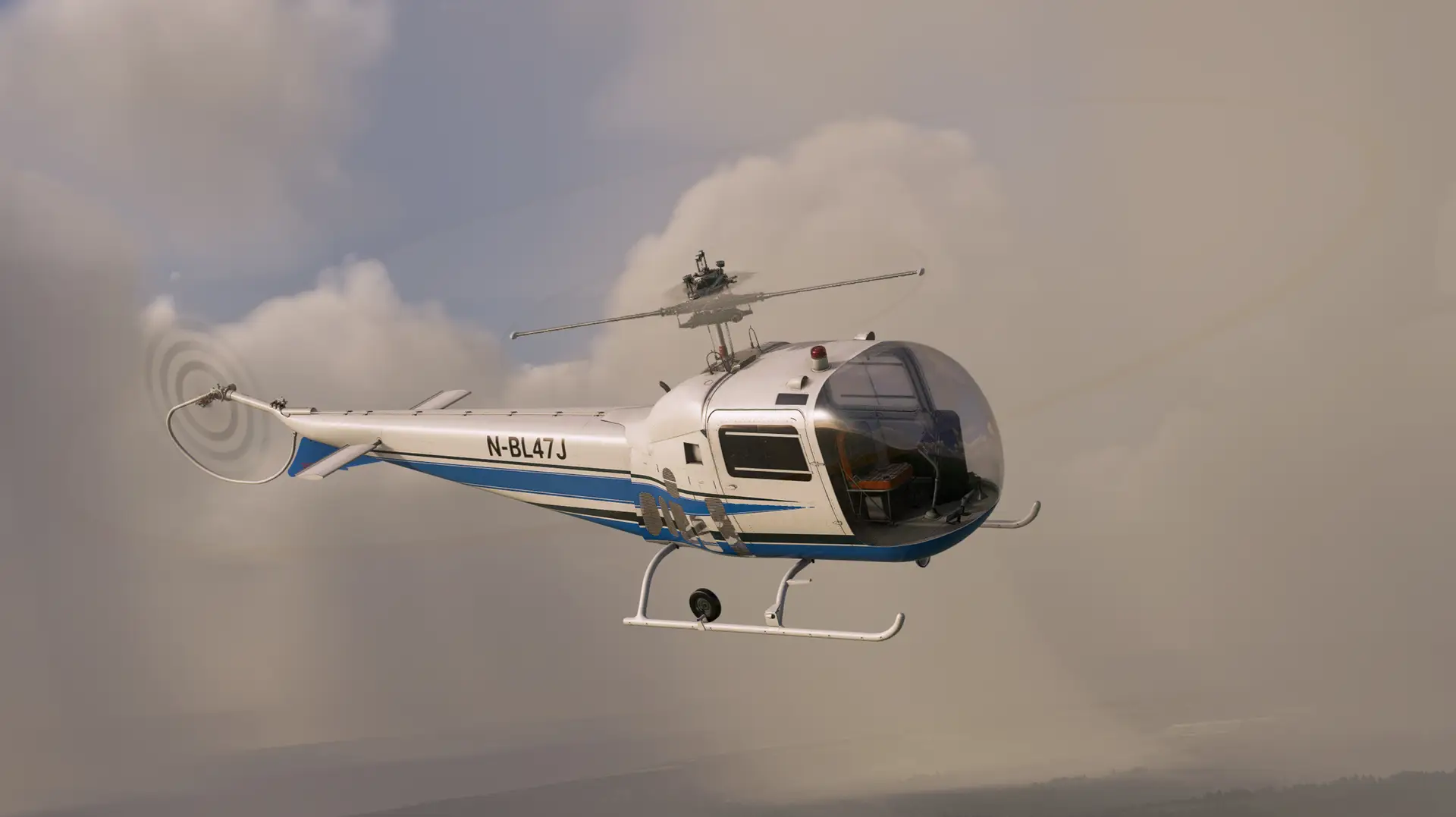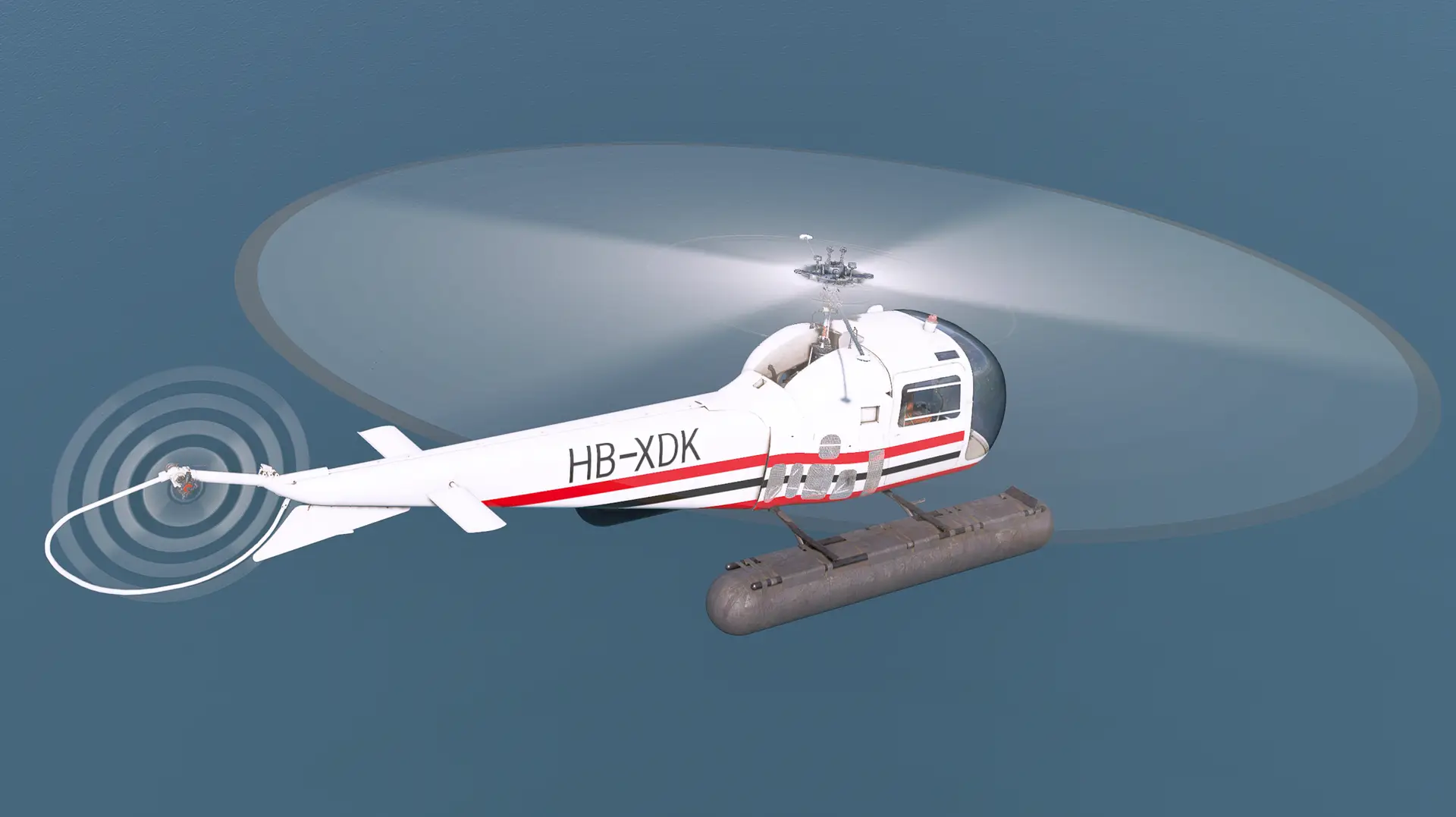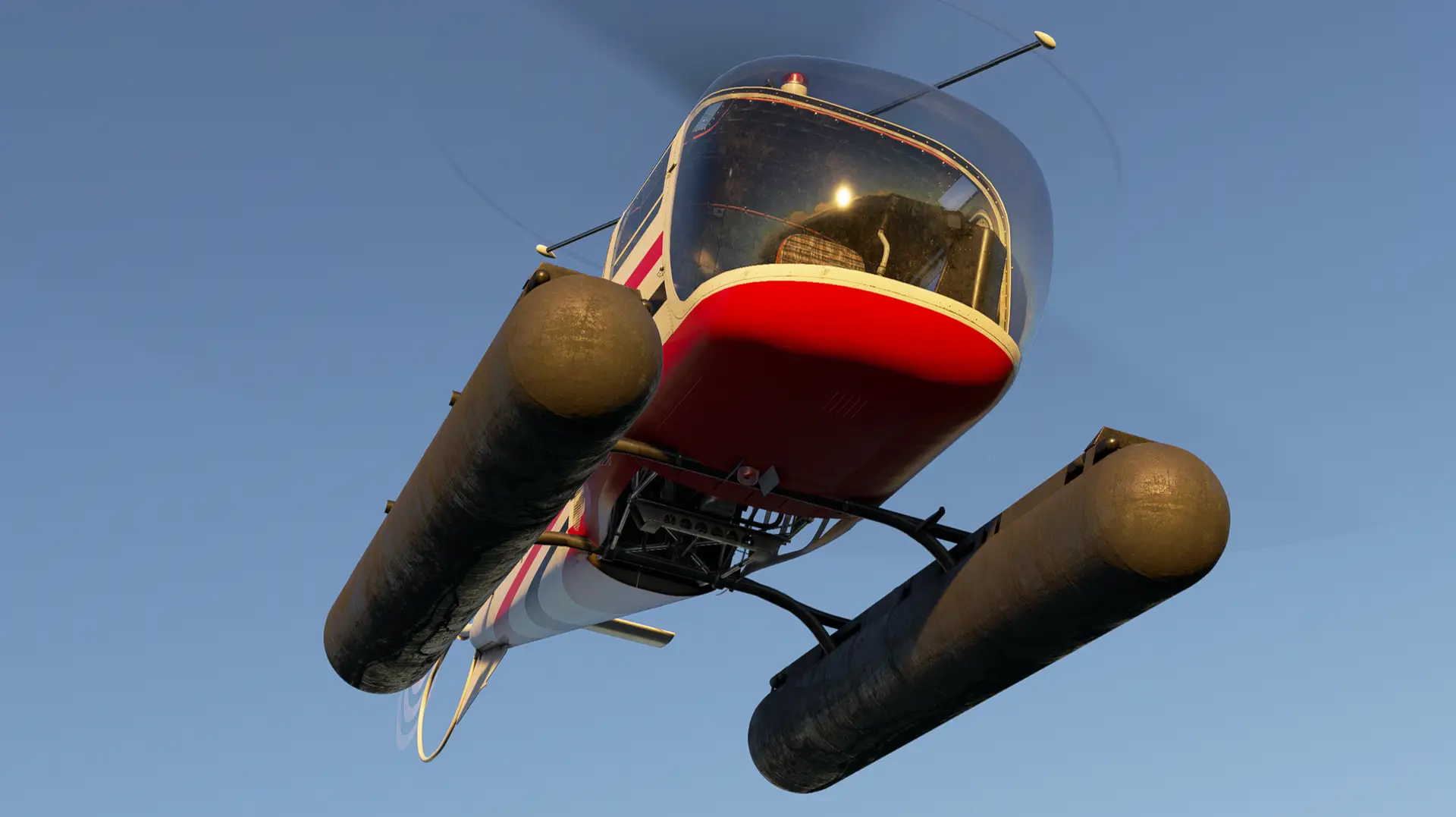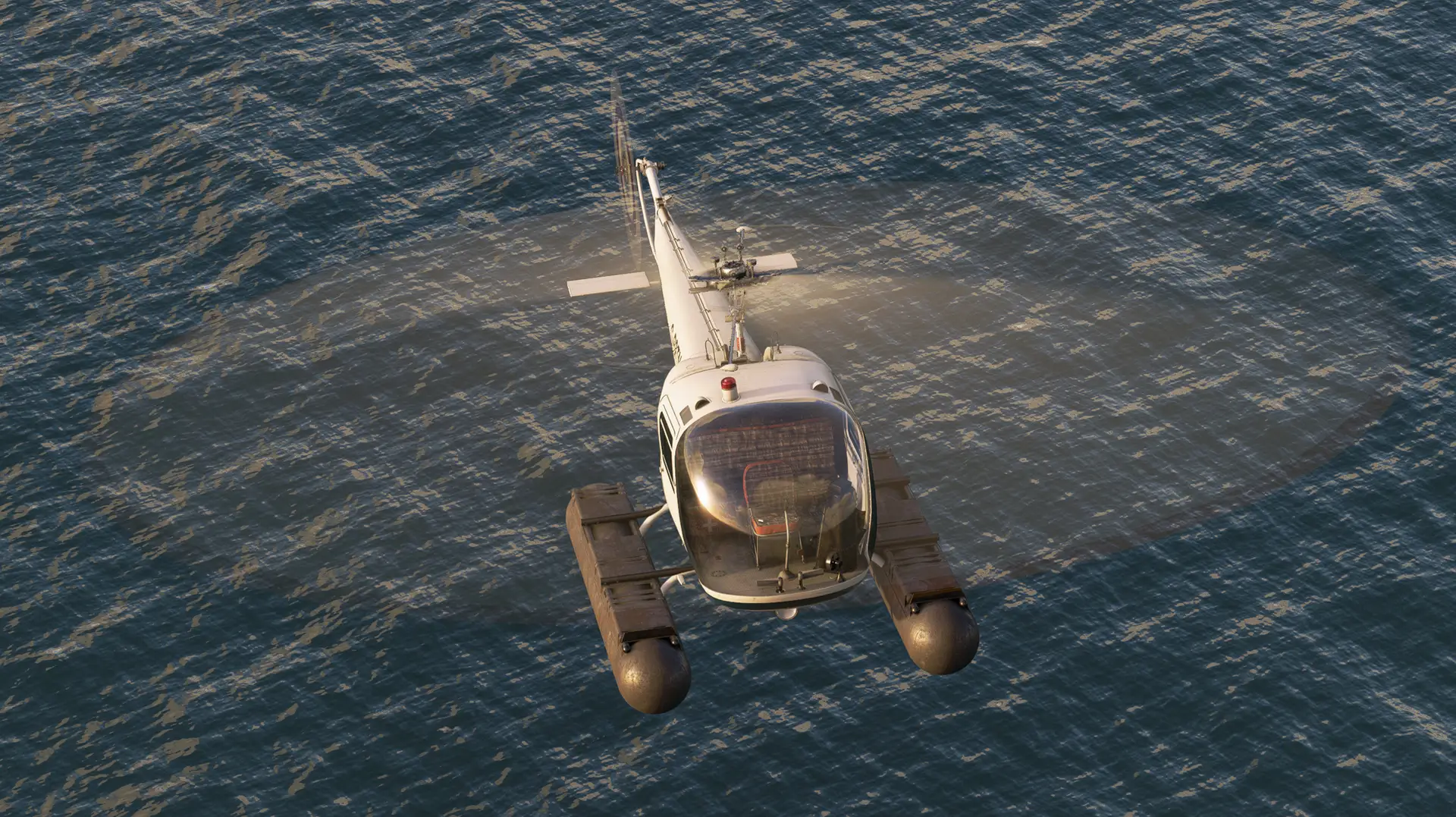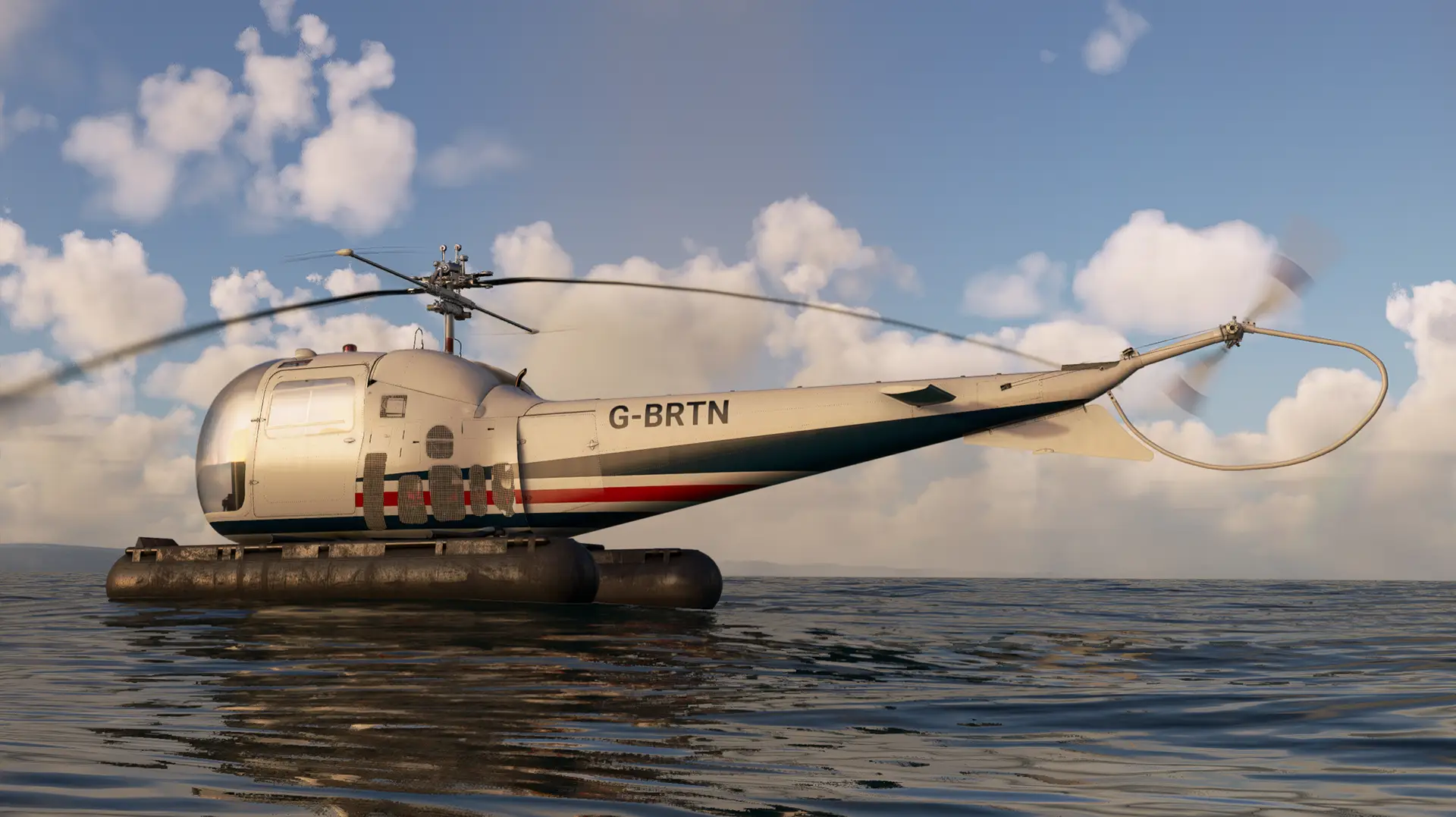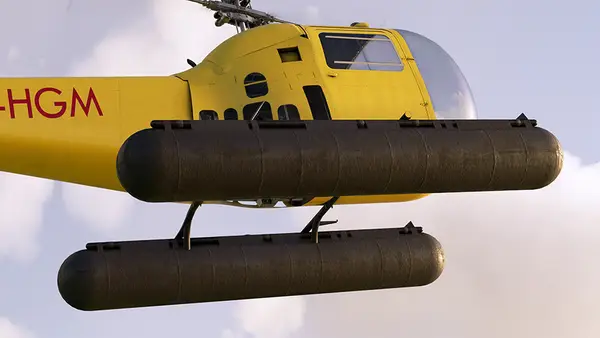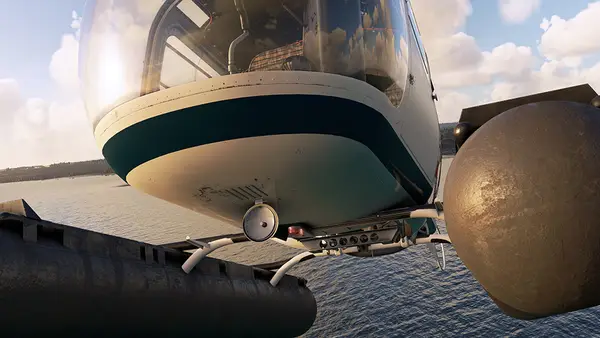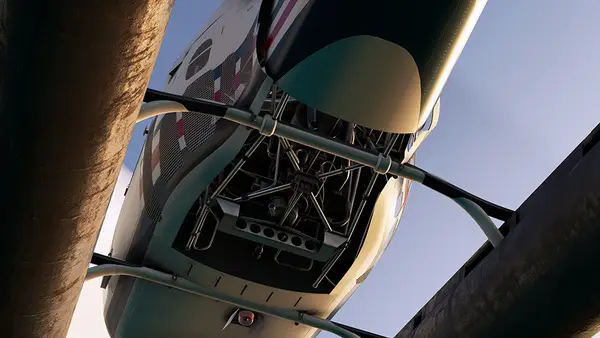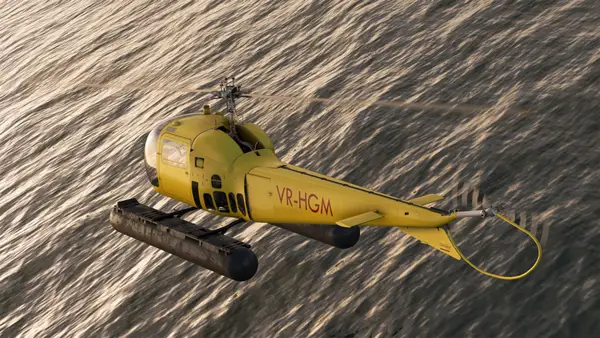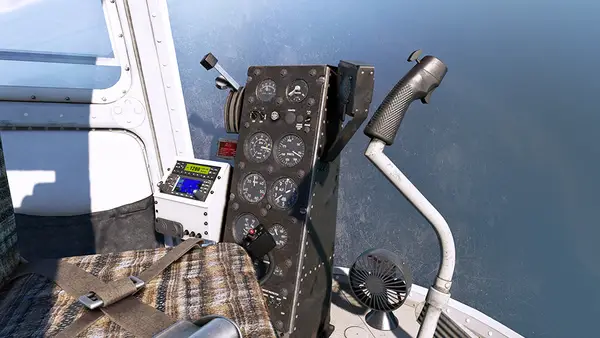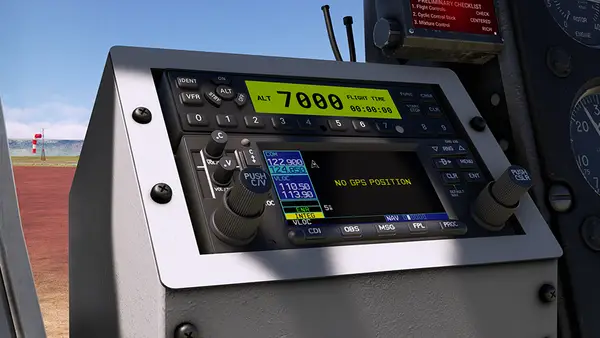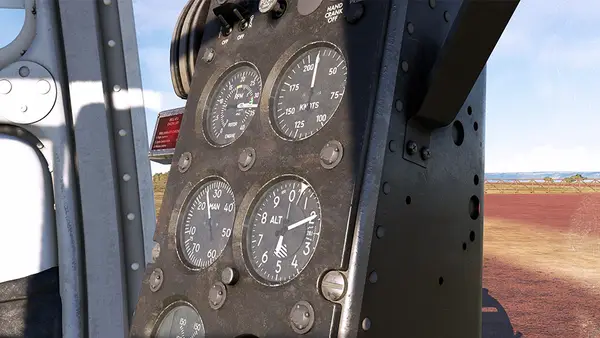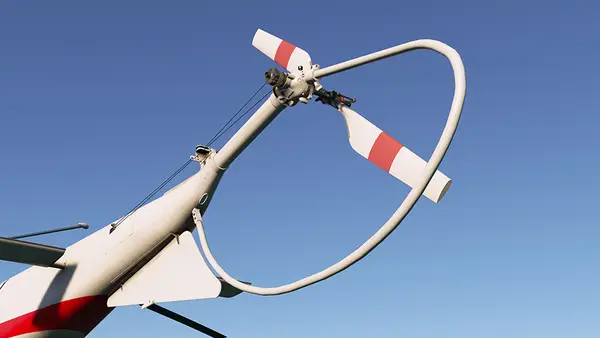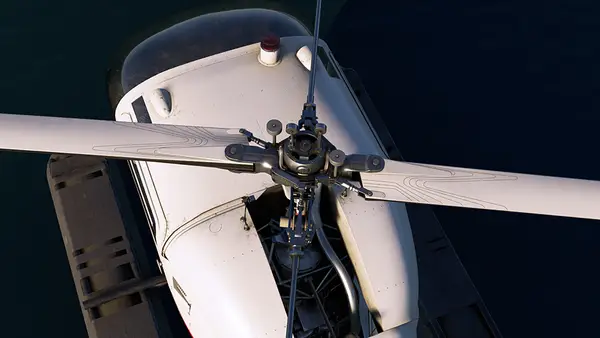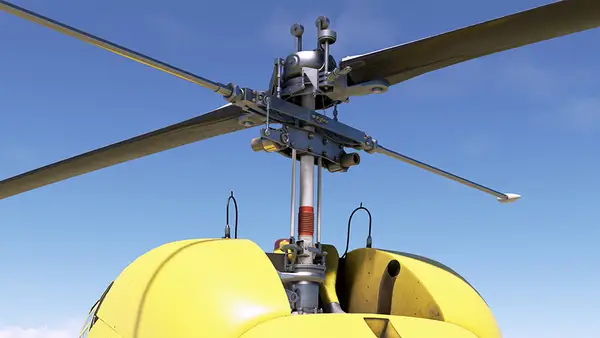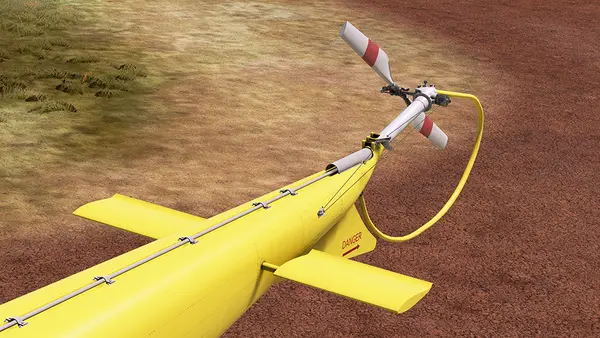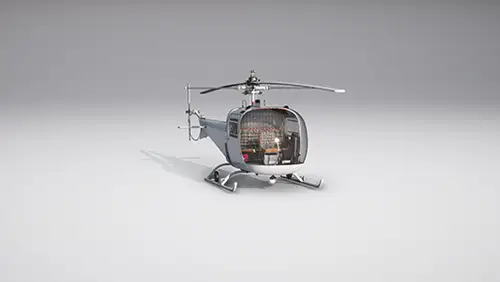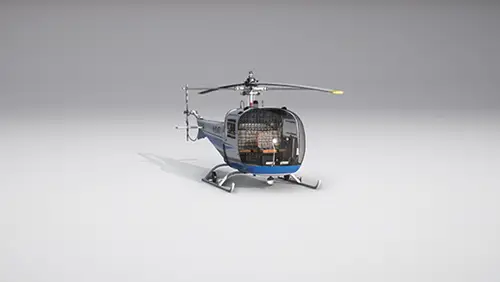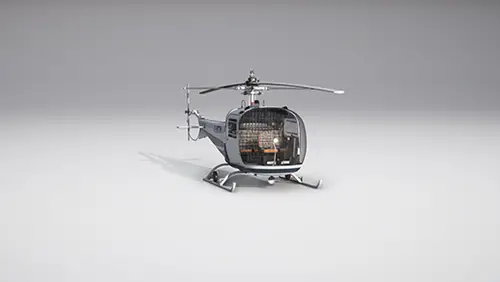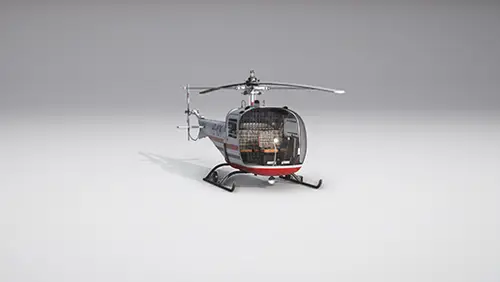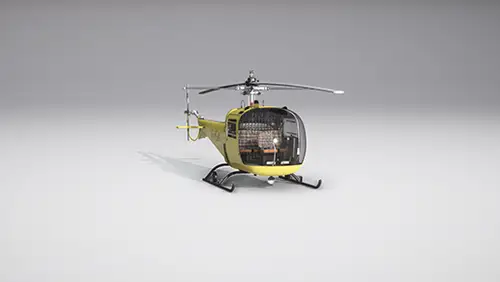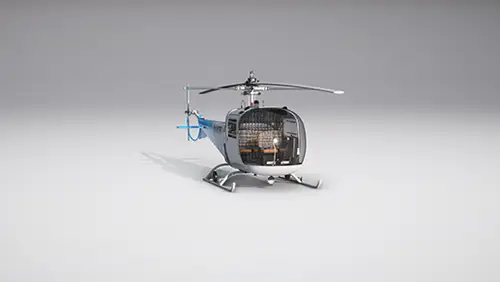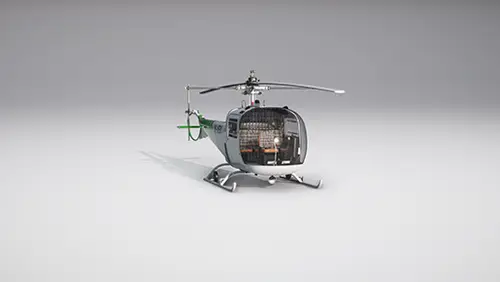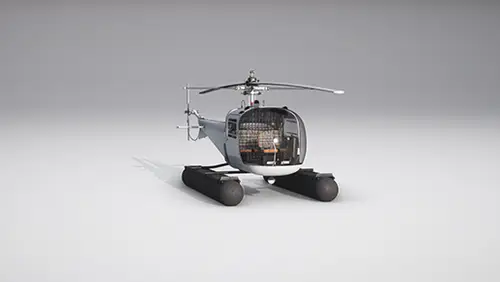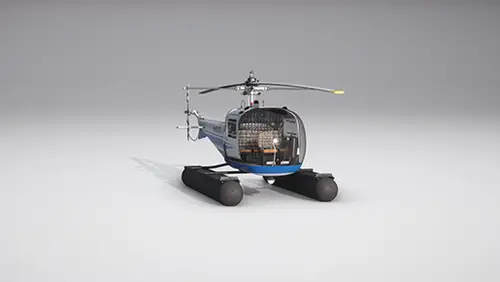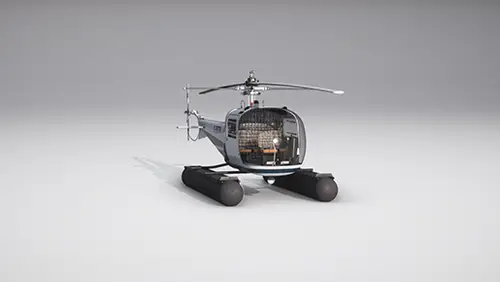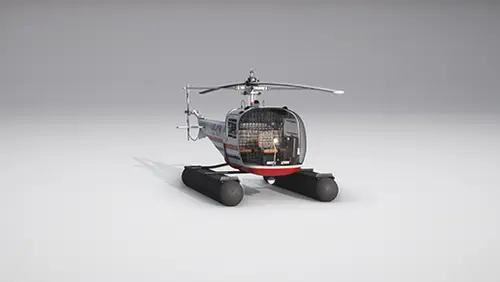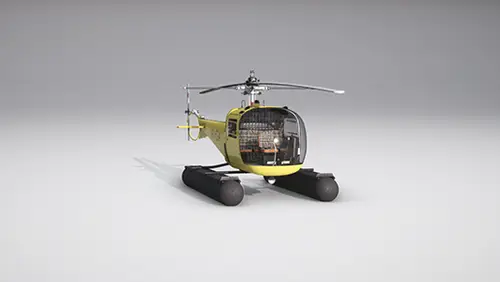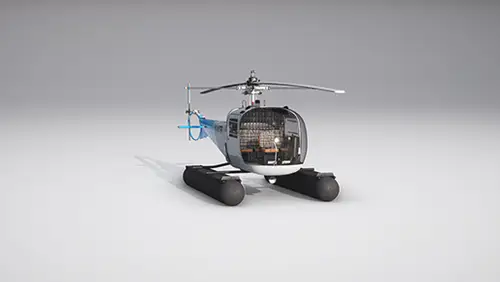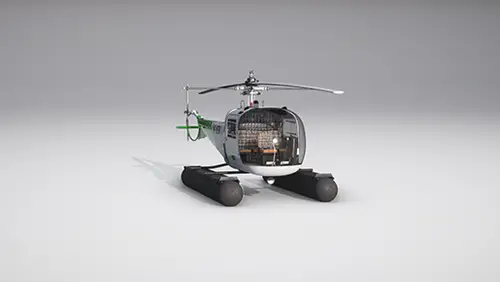The 47J-2 Ranger is a single-rotor, single-engine, piston-powered helicopter developed and manufactured by Bell Helicopter of the United States. The 47J-2 is an iterative variant of the Bell 47, which took its first flight in 1945 and was introduced the following year. Bell developed the 47J-2, which they designated as an executive transport, from the 47H. The company introduced the 47J-2 in 1956.
The 47J-2 traces its lineage to the birth of the helicopter. American rotorcraft pioneer Arthur Young developed a series of prototype helicopter models throughout the 1930s and then joined Bell Aircraft Company in 1941. Young’s early work culminated in the Bell 30, a demonstrator helicopter that took its maiden flight on June 26, 1943. The successful Bell 30 provided the basis for Bell’s first commercial helicopter, the Bell 47.
The Bell 47 is a “tail rotor helicopter” that uses a 2-blade main rotor and a 2-blade anti-torque tail rotor. The prototype took its maiden flight on December 8, 1945, and Bell introduced the first production variant, the 2-seat 47A, in 1946. The 47A was the first helicopter to be certified for civilian use in the United States and quickly became widely adopted for a variety of applications. A long series of iterations followed, including the H-13 Sioux, used by the U.S. and British military.
The Bell 47 family of rotorcraft would go on to be one of the most successful aircraft lineages, of any type, in history. Bell and other companies under its license manufactured more than 5,000 47s. Many remain airworthy decades after the prototype first flew.
In the Fall of 1954, Bell introduced the Bell 47G, a powerful 4-seat general utility version of the 47. It was quickly followed by the Bell 47H, which they based on the 47G. The 47H was the first helicopter intended for executive use, and Bell sold only 33 models of it. Although the 47H proved a commercial disappointment, Bell remained steadfast in its resolve to introduce a helicopter aimed at the business and executive transport market.
In 1956, Bell released the 47J-2 Ranger, a 4-seat version of the 47H. Larger than its predecessor, and fitted with a more powerful engine, it proved a great success. The Ranger was the first helicopter to transport a sitting American president and was featured in a number of popular movies, including the James Bond film Thunderball.
The Bell 47J-2 features a single-pilot console that is centered at the forward portion of the cabin. The helicopter’s bubble canopy provides maximum visual situational awareness for the pilot, with a 180-degree unobstructed field of view. The cabin is roomy and has seating for up to three passengers behind the pilot. The helicopter uses standard skids for its landing gear and can be fitted with floats for marine operations.
The 47J-2 Ranger proved to be one of the most successful members of the Bell 47 family. The company manufactured 361 Rangers, comprising a series of civil and military subvariants. The helicopter saw worldwide use, both for commercial applications as well as for the governments of a dozen nations. In addition to executive transport, the Ranger was used for general utility transport of people and cargo, air ambulance, commuter flights, aerial surveying, and a variety of military applications, including liaison and reconnaissance.
The U.S. Air Force purchased two 47J-2s, designated UH-13J Sioux, in March of 1957 for use as the first presidential transport helicopters in American history. On July 12, 1957, American President Dwight D. Eisenhower became the first U.S. president to be transported by helicopter when an Air Force Sioux lifted off from the White House lawn.
The Bell 47J-2 measures 32 feet, 5 inches in length, stands 9 feet, 3 inches tall, and has a 2-blade main rotor system with a diameter of 37 feet, 2 inches. It is powered by a 6-cylinder Lycoming VO-540-B1B piston engine that delivers up to 260 horsepower to the rotor systems. It has a range of 260 miles, climbs at 870 feet per minute, and has a service ceiling of 11,000 feet above sea level. It cruises at 91 miles per hour and has a top speed of 105 mph.
